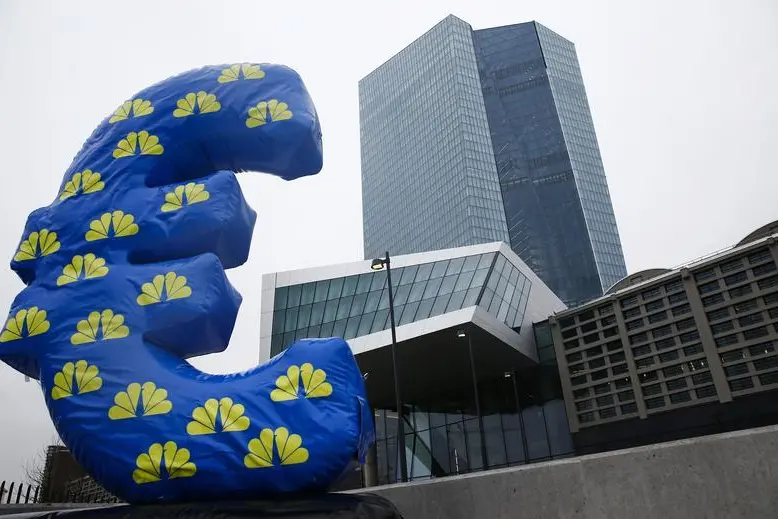PHOTO
FRANKFURT - The European Central Bank cut support for the euro zone economy by another notch on Thursday but promised some continued support for 2022, confirming its relaxed view on inflation and indicating that an exit from ultra-easy policy would be slow.
With the euro zone's economy now back to its pre-pandemic size, pressure is mounting on the bank to follow its global peers in turning off the money taps.
But policymakers are worried that stepping back too quickly could unravel efforts to rekindle once-anaemic inflation, while the emergence of the fast-spreading Omicron variant risks new headwinds for the economy if it leads to reimposed restrictions.
"The spread of new coronavirus variants is creating uncertainty," ECB President Christine Lagarde told a news conference, citing the fall-out for hospitality and other sectors if new restrictions on activity are needed.
Lagarde added that the global supply chain snags that emerged as demand took off after the lockdowns of 2020 were already holding the recovery back.
"These bottlenecks will be with us for some time but they should ease some time in 2022," she said.
The bank also raised its inflation projections and cut its 2022 growth outlook. It now sees inflation above its 2% target this year and in 2022 but holding below it in the following two years, in line with its view that the current inflation "hump" will be longer than expected but still transitory.
The ECB said it will cut bond purchases under its 1.85 trillion euro Pandemic Emergency Purchase Programme next quarter and will wind down the scheme next March in a long-flagged move.
But it will ramp up bond buys under the longer-running but more rigid Asset Purchase Programme (APP), doubling them to 40 billion euros under the APP in the second quarter then spending 30 billion euros in the third quarter.
From October onwards, purchases will be maintained at 20 billion euros, for "as long as necessary" to reinforce the accommodative impact of the ECB's policy rates, it said.
LESS DOVISH
The euro rose 0.35% to $1.13350 on what analysts said was a less dovish than expected overall outcome.
"The ECB has surprised the market with the relatively contained size of APP monthly purchases going forward, though there are dovish elements in its statement with respect to the reinvestments of the PEPP and the fact that it could be resumed," said Jane Foley, head of FX strategy at Rabobank.
The ECB said cash maturing from the emergency scheme will be reinvested until the end of 2024, a year longer than previously planned, and funds spent flexibly to help markets in stress.
"This could include purchasing bonds issued by the Hellenic Republic over and above rollovers of redemptions in order to avoid an interruption of purchases in that jurisdiction, which could impair the transmission of monetary policy to the Greek economy," the ECB said.
Thursday's moves leave the world's two biggest central banks on opposing courses after the U.S. Federal Reserve accelerated its exit from asset buys on Wednesday and flagged several rate hikes. Similar divergences have led to market turbulence in the past.
Although the ECB's "recalibration" will leave asset buys well below their current levels, the effective cut is likely to be much smaller as fresh government issuance will decline, so that the ECB will continue to hoover up most of the new debt.
The bank also maintained its forward guidance on interest rates and asset purchases, which some had expected to be tweaked.
(Reporting by Balazs Koranyi and Francesco Canepa; Editing by Catherine Evans) ((Balazs.Koranyi@thomsonreuters.com; +49 30 220 133 623; Reuters Messaging: balazs.koranyi.thomsonreuters.com@reuters.net))





















